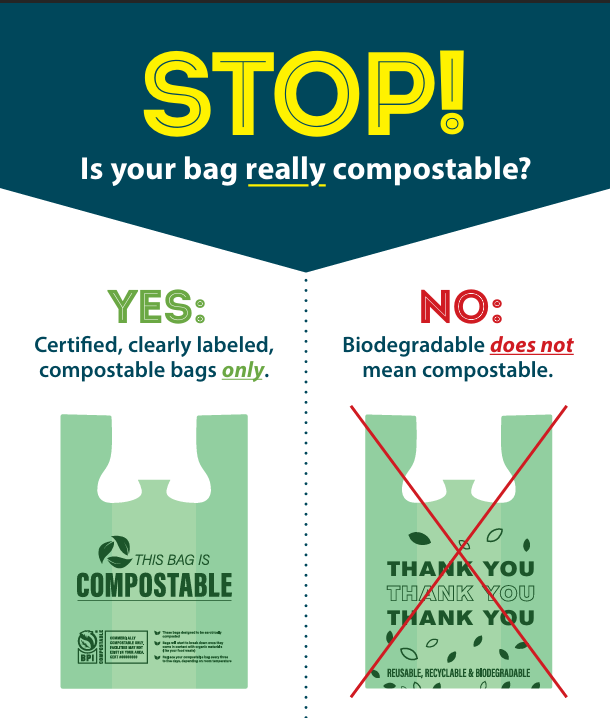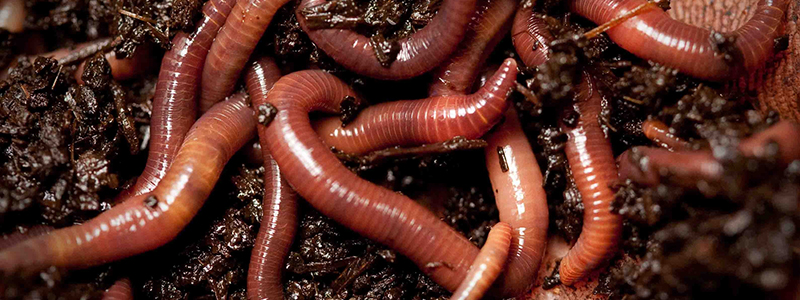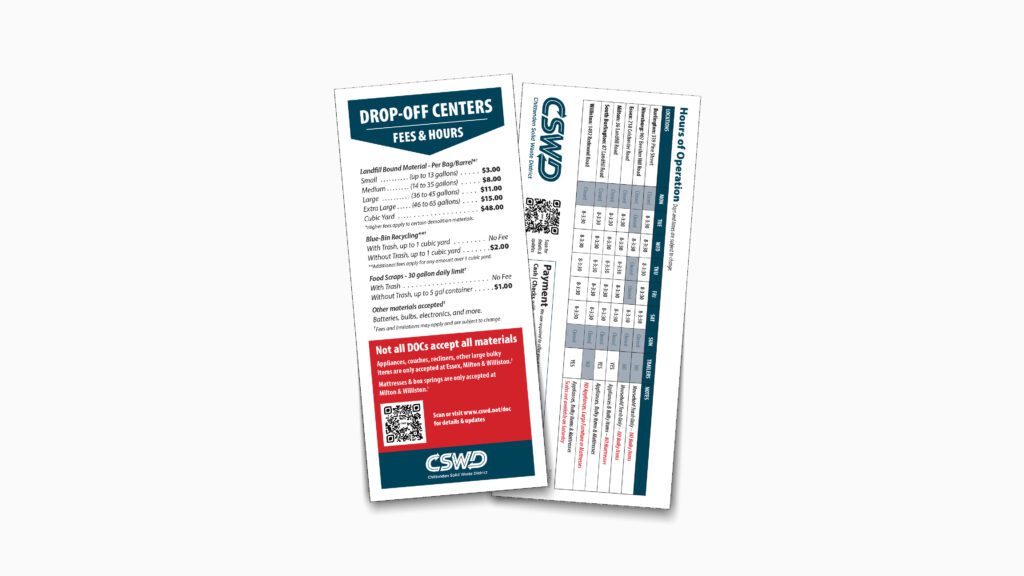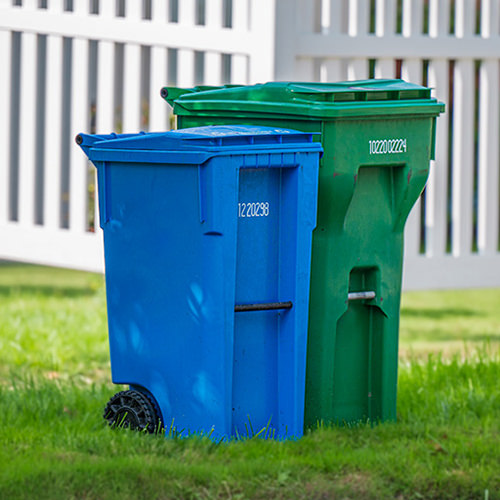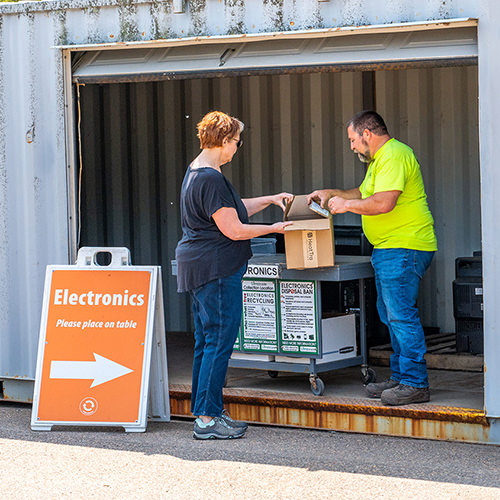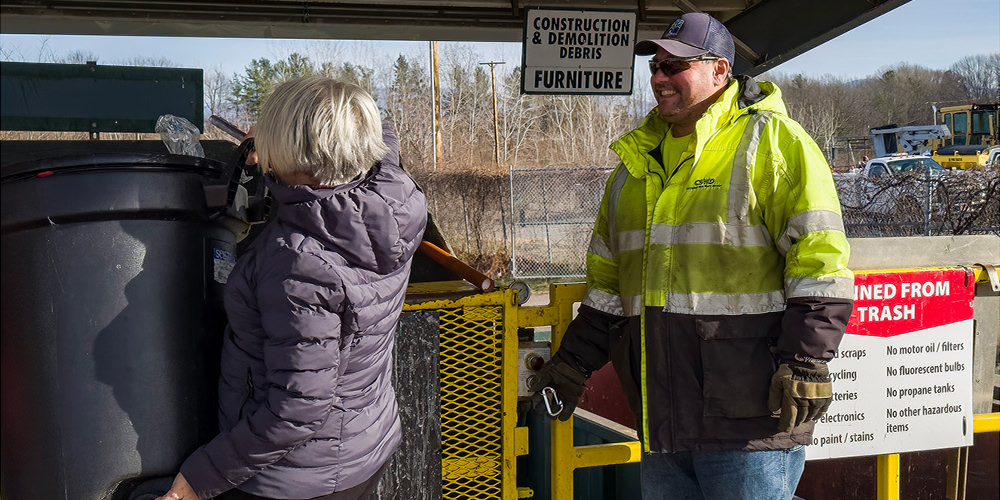Organics
Browse this section:
What are
Organics?
Organics consists of:
- Food scraps of any kind (bones and meat included)
- Leaves, grass and yard trimmings
- Natural wood (branches, logs, clean stumps, woody shrubbery)
Vermont has banned all of these materials from the landfill, meaning It is illegal to put any of them into the trash. This is because:
- Landfills are airless “tombs.” Organics take years and even decades to break down in this environment, and because there is no oxygen, they create methane. Methane is a potent greenhouse gas contributing to climate change, and landfill gas systems cannot capture all the methane created as organics break down.
- We can turn these valuable resources into local compost!
Food Scrap Options
Leaves, Grass, and Yard Trimmings Options
Natural Wood Options
CSWD Organics Contamination Policy
Contamination of our organics continues to be a challenge for the district. Keeping our organics clean is essential to create rich and viable compost. Our Contamination Policy aims to reduce contaminants by identifying problem areas and providing outreach and support for correction.
Organics Education
Compostable Bag Poster
Poster to help distinguish between bags that are compostable and…
Food Scraps poster (schools)
This poster makes a handy reference above a school sorting…
CSWD Guide to Worm Composting
This guide was adapted by the Chittenden Solid Waste District…
CSWD Drop-Off Center Fees & Hours
This double-sided info sheet is designed to be hung on…
Helpful Resources
Related Events
See upcoming CSWD Workshops and Tours, and holidays that may affect Drop-Off Center hours.

